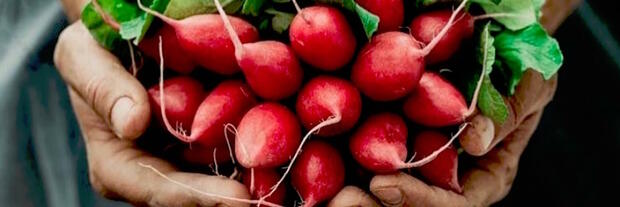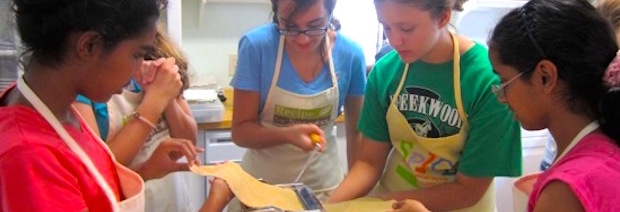The USDA took another step in the right direction with the hire of Deborah Kane as national director for the Farm to School Program. Recognized by the White House as a "Champion of Change" for her work in regional food system development, Kane will join a team that is already working towards expanding the programming and increasing access to fresh foods.
http://www.farmtoschool.org/
In order for children to be receptive to acquiring and retaining an interest in healthy, fresh food, they need to be involved in the discussion of where their food is coming from. The Farm to School initiative, created in 2007, is "an effort to connect schools (K - 12) with regional or local farms in order to serve healthy meals using locally produced food" http://www.fns.usda.gov/cnd/F2S/about.htm#Initiative. The National Farm to School Network works to link children and the community to the story behind their food. From these stories comes more appreciation of the land, animals and labor that goes into producing the next meal, whether in the lunchroom or at the home dining table.
Just as Recipe for Success Foundation (RFS) focuses on involving children in the entire food cycle, implementing programs such as the award winning Seed-to-Plate Nutrition Education (S2P) - an interactive, educational in-school program that concentrates on making healthy food fun- the Farm to School Program pushes for healthier understanding of the entire food process, from the soil to the dinner table. Once students become a more integral part of this process - whether that means discussing which produce are in season, understanding the health benefits of whole foods, visiting a nearby farm, or perhaps even harvesting produce themselves- they will be more likely to incorporate healthier foods into their lifestyle.
Changes - whether incremental or sweeping- in the way food is presented to children are a necessary step in the quest to reverse childhood obesity.
http://www.farmtoschool.org/
In order for children to be receptive to acquiring and retaining an interest in healthy, fresh food, they need to be involved in the discussion of where their food is coming from. The Farm to School initiative, created in 2007, is "an effort to connect schools (K - 12) with regional or local farms in order to serve healthy meals using locally produced food" http://www.fns.usda.gov/cnd/F2S/about.htm#Initiative. The National Farm to School Network works to link children and the community to the story behind their food. From these stories comes more appreciation of the land, animals and labor that goes into producing the next meal, whether in the lunchroom or at the home dining table.
Just as Recipe for Success Foundation (RFS) focuses on involving children in the entire food cycle, implementing programs such as the award winning Seed-to-Plate Nutrition Education (S2P) - an interactive, educational in-school program that concentrates on making healthy food fun- the Farm to School Program pushes for healthier understanding of the entire food process, from the soil to the dinner table. Once students become a more integral part of this process - whether that means discussing which produce are in season, understanding the health benefits of whole foods, visiting a nearby farm, or perhaps even harvesting produce themselves- they will be more likely to incorporate healthier foods into their lifestyle.
Changes - whether incremental or sweeping- in the way food is presented to children are a necessary step in the quest to reverse childhood obesity.














Have a question?